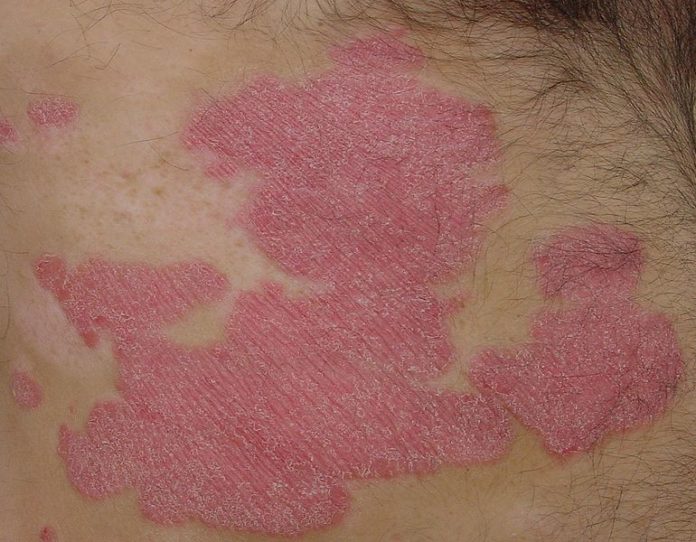Macrophage-Derived Compound to Treat Autoimmune Disorders
Metabolic regulation has been recognized as a powerful principle guiding immune responses. Inflammatory macrophages undergo extensive metabolic rewiring marked by the production of substantial amounts of itaconate, which has recently been described as an immunoregulatory metabolite.
Itaconate and its membrane-permeable derivative dimethyl itaconate (DI) selectively inhibit a subset of cytokines, including IL-6 and IL-12 but not TNF. The major effects of itaconate on cellular metabolism during macrophage activation have been attributed to the inhibition of succinate dehydrogenase, yet this inhibition alone is not sufficient to account for the pronounced immunoregulatory effects observed in the case of DI.
Now, researchers at the Washington University School of Medicine have found that this compound, itaconate, can help curb psoriasis in mice and holds promise for other autoimmune diseases.
The compound suppresses an inflammatory pathway that is overactive in many autoimmune diseases, suggesting that it may be effective against multiple sclerosis, rheumatoid arthritis, lupus and other autoimmune diseases as well as psoriasis.
“We are taking advantage of the body’s own anti-inflammatory power and showing that it can help in real situations when your own immune system is hurting you,” said senior author Maxim Artyomov, PhD, an assistant prof
essor of pathology and immunology.When the body’s defense system reacts against an infection, cells and molecules respond to an injury, causing inflammation- such as the redness and swelling around an infected cut. Sometimes, however, inflammation moves toward the body’s own healthy tissues and causes autoimmune diseases. Anti-inflammatory drugs can be effective against many of these diseases, but not all of them.
“Everyone thought that if it is produced by inflammatory cells it should fight infection, but no- it’s anti-inflammatory,” Artyomov said. “Now we know that itaconate compounds can help with autoimmune diseases, specifically in psoriasis and potentially in multiple sclerosis.”
Using itaconate derivatives scientists managed to significantly alleviate the symptoms of psoriasis in mice as part of an experiment. The researchers then moved from mice to an isolated culture of human skin cells. They noted the same effect there: the inflammation decreased, and the symptoms of psoriasis became less pronounced. This suggests that the deciphered itaconate mode of action works in human cells as well. Therefore, it is possible to fight inflammatory autoimmune diseases with the help of this substance and its derivatives.
Scientists have found that both itaconate and its derivative dimethyl-itaconate actively connect to thiol groups of cellular proteins and other molecules. This process activates electrophilic stress but deactivates the genes of the inflammatory response. As a result, the synthesis of key inflammatory mediators (cytokines IL-6, IL-12) is selectively inhibited.
The researchers are now studying whether itaconate compounds can reduce multiple sclerosis in mice after noticing structural similarities between dimethyl itaconate and dimethyl fumarate, which is the active ingredient in a multiple sclerosis drug.
“This small molecule is turning out to be really powerful,” Artyomov said.






























